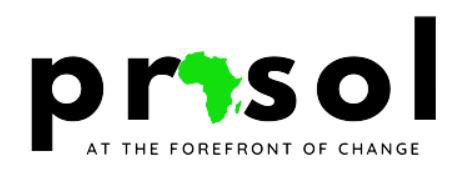Duration: 5 Days
Language: English
This comprehensive five-day course is designed to equip participants with the knowledge and practical skills needed to excel in their research projects or theses. It is suitable for PhD, Masters, undergraduate students and other researchers who are keen to hone their research skills and finishing their project/thesis with ease. Get equipped with practical tips, skills and techniques on research methods. Each day consists of three sessions, providing ample opportunities for hands-on learning and interaction with experienced researchers and lecturers.
Day 1: Introduction to Practical Research Methods
Session 1: Understanding the Research Process
- Introduction to the research process
- Differentiating between qualitative and quantitative research
- Identifying research goals and objectives
Session 2: Research Design and Planning
- Types of research designs
- Formulating research questions and hypotheses
- Developing a research plan
Session 3: Data Collection Methods
- Overview of data collection methods (surveys, interviews, observations)
- Selecting appropriate data collection methods
- Data collection tools and techniques
Day 2: Crafting the Research Problem Statement
Session 1: Defining the Research Problem
- Understanding the importance of a well-defined research problem
- Identifying research gaps and areas of interest
- Crafting a clear and concise research problem statement
Session 2: Research Objectives and Questions
- Formulating specific research objectives
- Developing research questions that align with the problem statement
- Ensuring research objectives are achievable and measurable
Session 3: Significance of the Study
- Discussing the significance of research in the academic and practical context
- Identifying stakeholders and beneficiaries of the research
- Articulating the value of the research to society
Day 3: Writing a Good Literature Review
Session 1: Understanding the Literature Review
- Purpose and role of the literature review in research
- Conducting a literature search and review
- Identifying key concepts and theories in the field
Session 2: Literature Synthesis and Critique
- Synthesizing findings from previous research
- Analyzing and critiquing literature for relevance and credibility
- Creating a conceptual framework based on reviewed literature
Session 3: Structuring the Literature Review
- Organizing the literature review effectively
- Writing techniques for a coherent and persuasive review
- Avoiding common mistakes in literature review writing
Day 4: Methodology, Instrumentation & Sampling
Session 1: Research Methodology
- Defining research methodology
- Choosing the appropriate research approach (qualitative, quantitative, mixed methods)
- Exploring the research philosophy and paradigm
Session 2: Research Instrumentation
- Developing research instruments (questionnaires, surveys, interviews)
- Ensuring reliability and validity of research instruments
- Pilot testing and refinement of instruments
Session 3: Sampling Techniques
- Types of sampling methods (random, stratified, purposive)
- Selecting a suitable sampling method for your research
- Determining sample size and sampling error
Session 4: Academic Referencing Styles
- Introduction to different referencing styles (APA, MLA, Chicago, etc.)
- Proper citation and referencing in academic writing
- Avoiding plagiarism through effective referencing
Session 5: Reference Management Tools
- Overview of reference management software (e.g., EndNote, Zotero)
- Using reference management tools to organize and cite sources
- Hands-on practice with reference management software
Day 5: Ethical Issues in Research
Session 1: Research Ethics Overview
- Understanding the importance of research ethics
- Ethical principles and guidelines in research
- Ethical review boards and their role
Session 2: Informed Consent and Participant Protection
- Obtaining informed consent from research participants
- Ensuring participant confidentiality and privacy
- Addressing potential risks and benefits in research
Session 3: Data Handling and Reporting
- Ethical data collection, storage, and management
- Avoiding plagiarism and academic misconduct
- Ethical considerations in data analysis and reporting
